Mathematics Subject Leader: Mr S Mallinson
Here at Shorne, we believe that a high-quality mathematics education is an essential part of everyday life and is crucial to providing a foundation for a child’s future.
Intent
The 2014 National Curriculum for Maths aims to ensure that all children:
- become fluent in the fundamentals of mathematics;
- reason mathematically;
- can solve problems by applying their mathematics.
Pupils should make rich connections across mathematical ideas to develop competence in these areas. They should also apply their mathematical knowledge to science and other subjects.
‘For every child to develop a sound understand of Maths, equipping them with the skills of calculation, reasoning and problem-solving that they need in life beyond school.’
These skills are embedded within Maths lessons, and we incorporate sustained levels of challenge through varied and high-quality activities with a focus on these three areas.
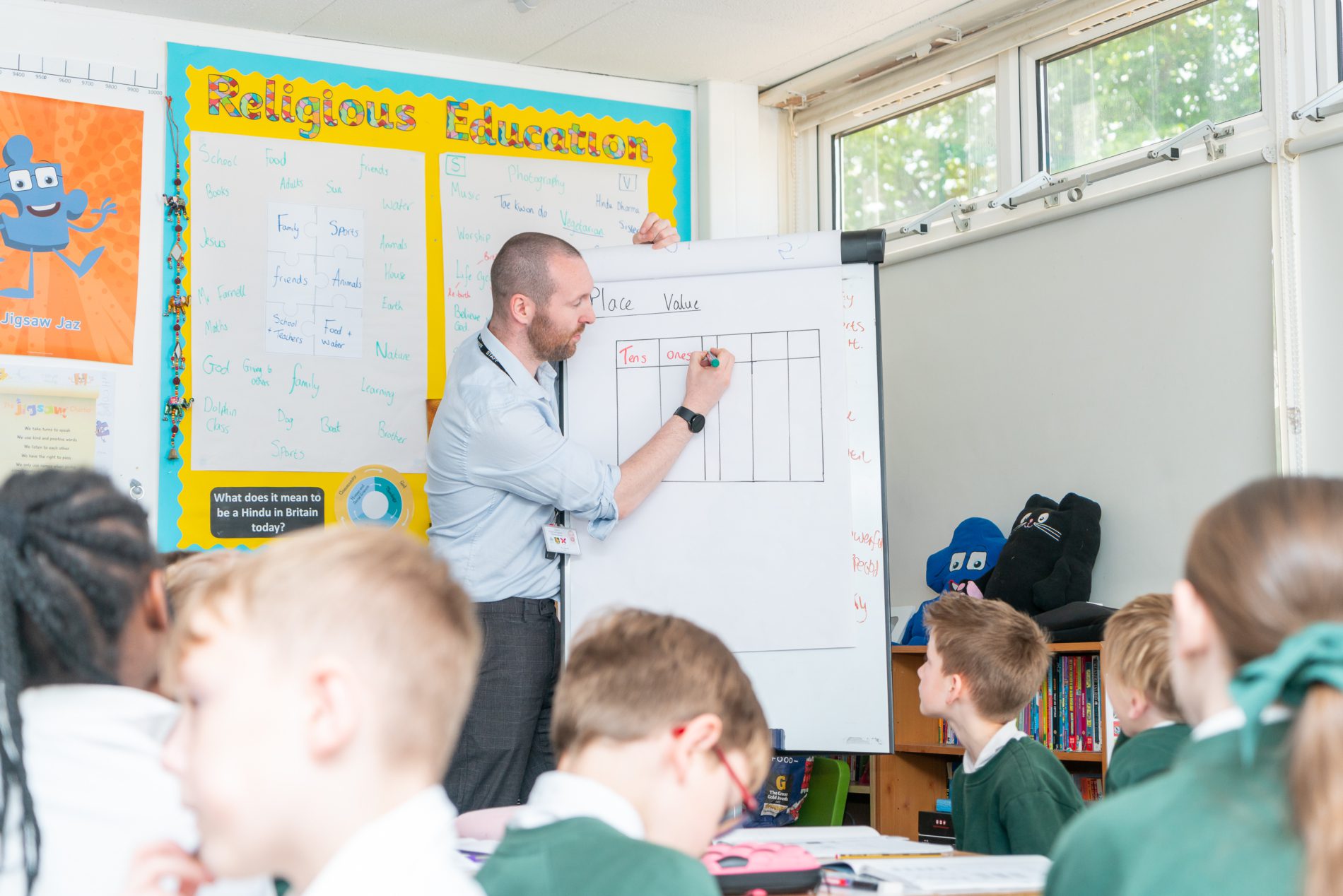
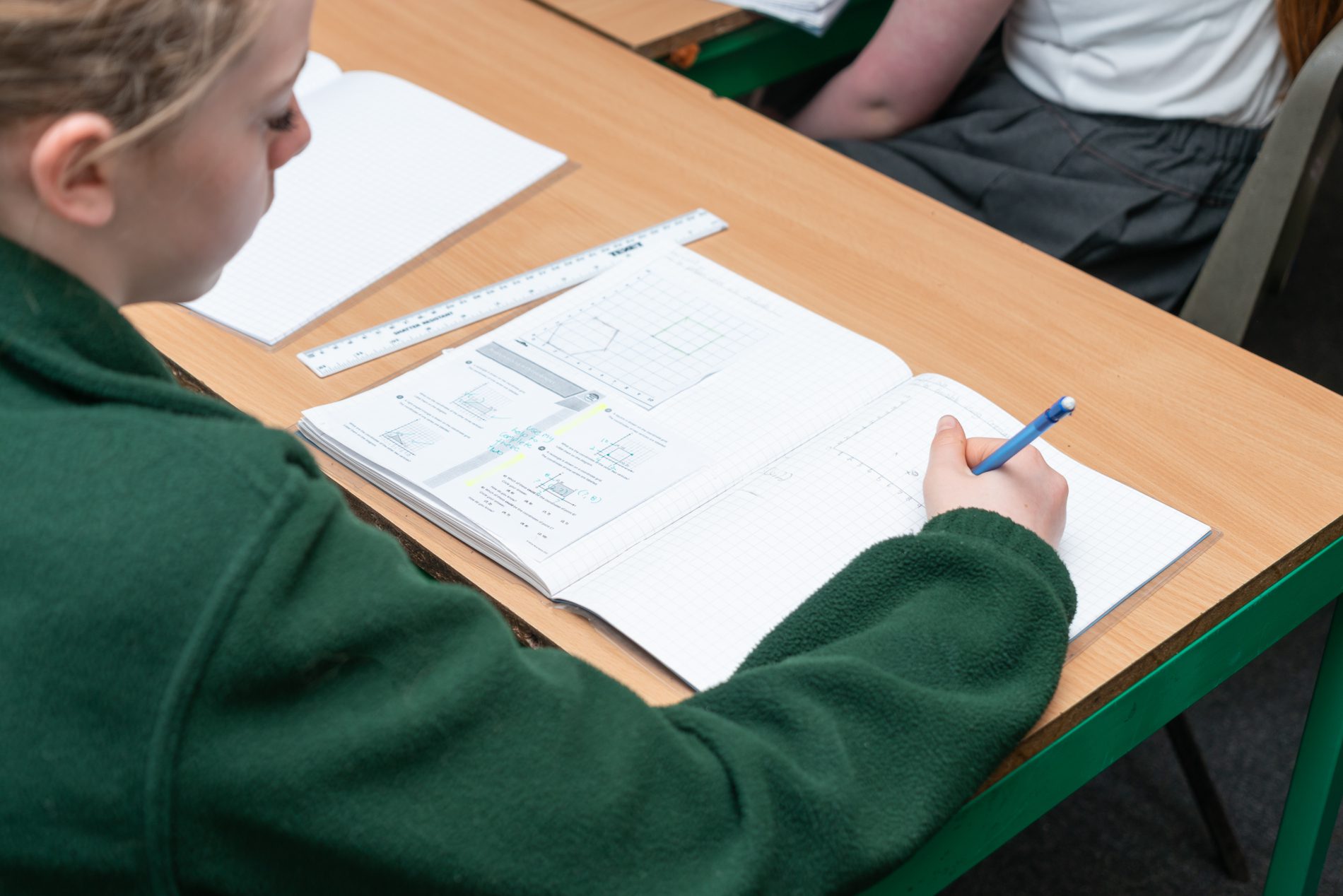
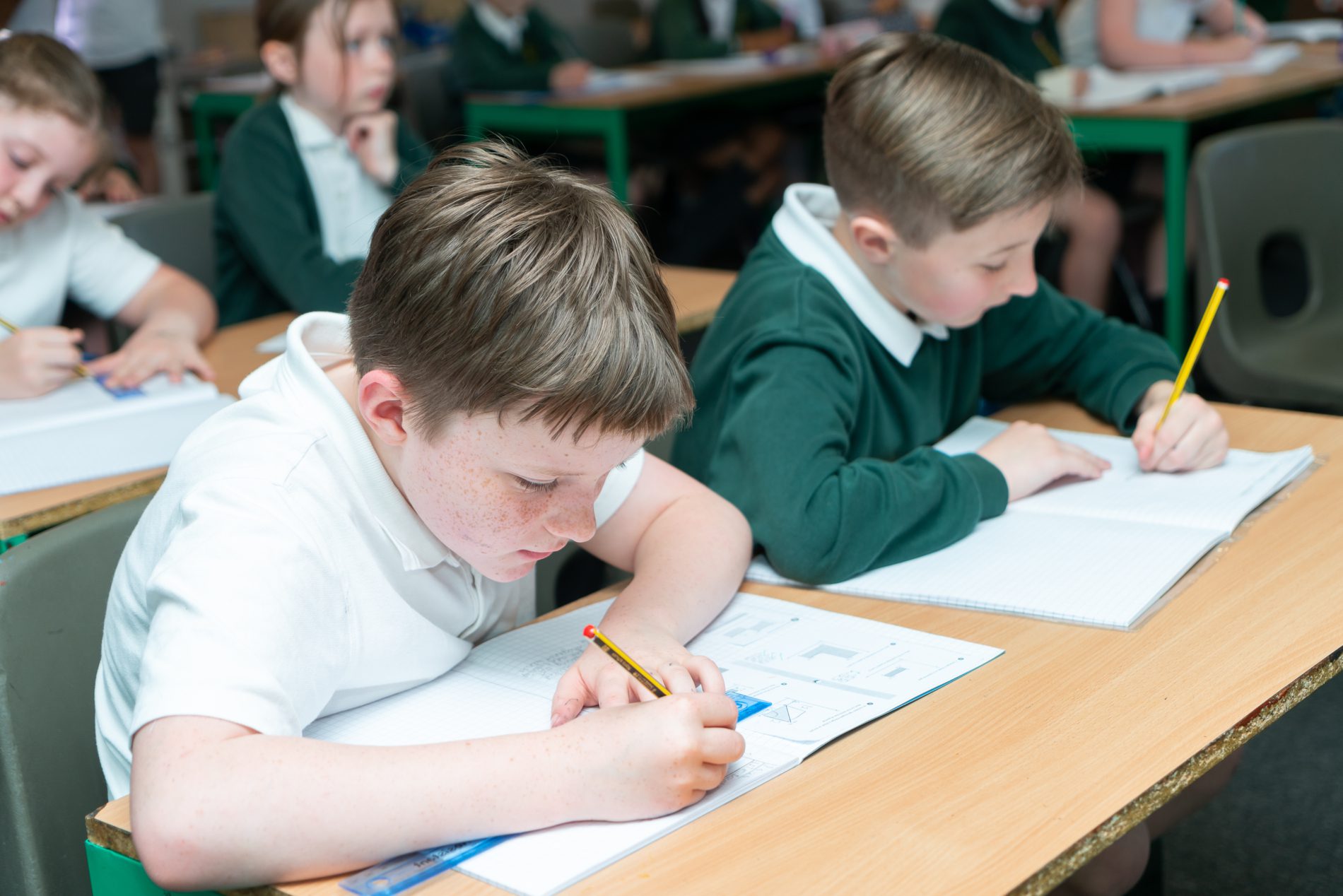
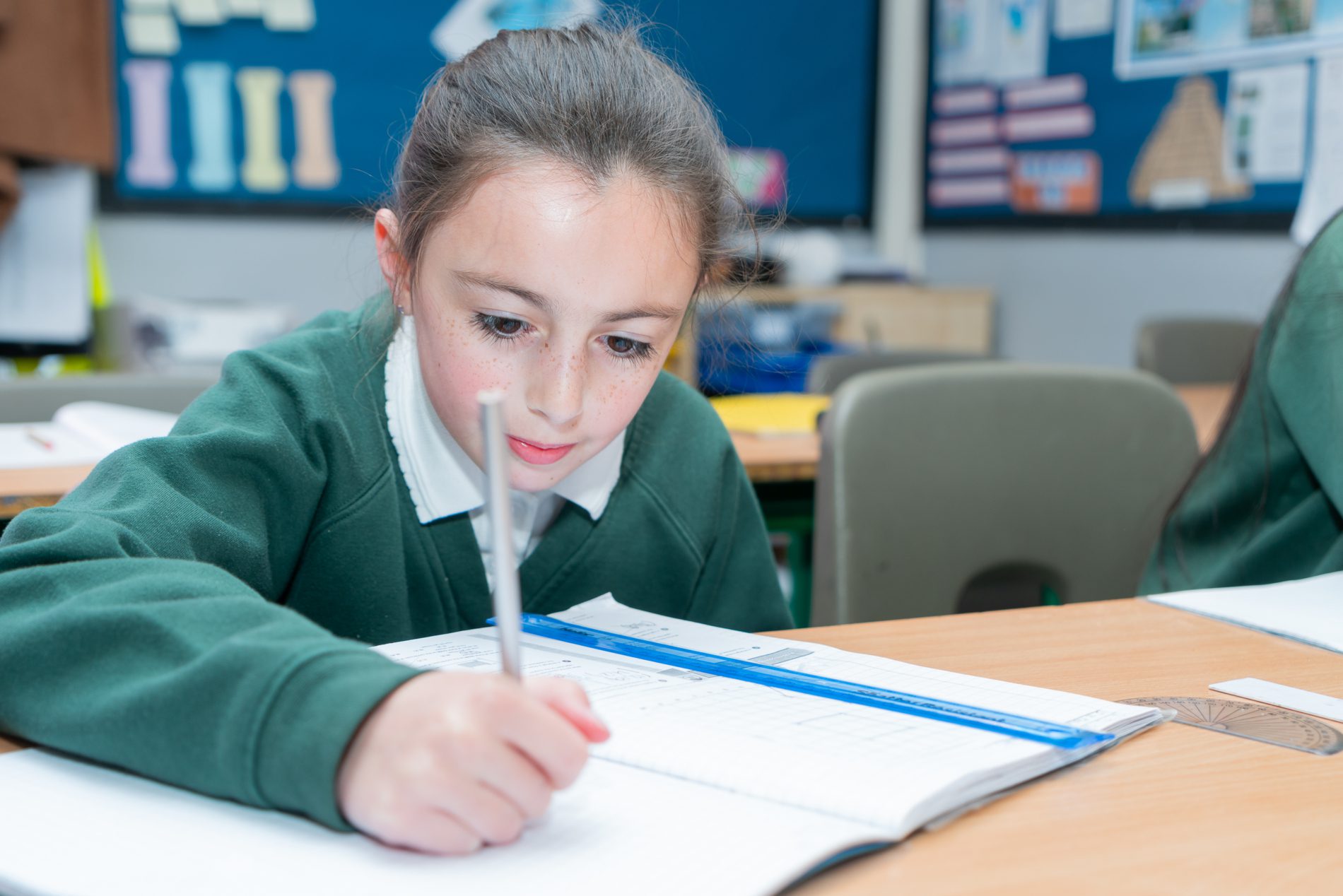
Implementation
The content and principles underpinning the 2014 Mathematics curriculum and the Maths curriculum at Shorne CE Primary School reflect those found in using high performing education systems. These principles and features characterise this approach and convey how our curriculum is implemented through:
- Teachers reinforcing an expectation that all children will be capable of achieving ambitious standards in Mathematics.
- A large majority of children progressing through the curriculum content at the same pace. Differentiation is achieved by emphasising deep knowledge and through individual support and intervention.
- Teaching is underpinned by methodical curriculum design and supported by carefully crafted lessons and resources to foster deep conceptual and procedural knowledge.
- Practice and consolidation playing a central role. Carefully designed variation within this allows children the opportunity to build fluency and understanding of underlying mathematical concepts.
- Teachers using precise questioning in class to assess conceptual and procedural knowledge and assess children regularly to identify those requiring intervention, so that all children keep up.
- Teachers using ‘Maths of the day’ as an active resource for children to do Maths linked with cross curricular subjects like P.E.
To ensure whole-school consistency and progression, the school uses the DfE approved White Rose Maths scheme and Chris Quigley Education Milestones, and the school’s engagement with the DFE funded Maths Hubs programme will ensure that staff at all levels understand the pedagogy of the approach. New concepts are shared within the context of an initial related problem, which children will be able to discuss in partners. This initial problem-solving activity prompts discussion and reasoning, as well as promoting an awareness of maths in many diverse and relatable real-life contexts that link to other areas of learning.
In KS1, these problems are almost always presented with objects (concrete manipulatives) for children to use. Children may also use manipulatives in KS2, and we always encourage the use of manipulatives. Teachers use careful questions to draw out children’s discussions and their reasoning. The class teacher then leads children through strategies for solving the problem including those already discussed. Independent work provides the means for all children to develop their fluency further, before progressing to more complex related problems.
Mathematical topics are taught in blocks, to enable the achievement of ‘mastery’ over time. Each lesson phase provides the means to achieve greater depth, with more able children being offered rich and sophisticated problems, as well as exploratory, investigative tasks, within the lesson as appropriate.
To achieve this continuous provision are provided through – number displays, naughty number line, counting resources, numbers, number puzzles, number games, shapes, shape games, blocks, dominoes, measuring resources, teaching clock, sorting, peg boards, loose parts, weighing scales, cubes, containers. All concepts are continuously reinforced within daily routines – lining up time, number rhymes, wall calendar, class clock, story time.
Impact
The school has a supportive ethos, and our approaches support the children in developing their collaborative and independent skills, as well as empathy and the need to recognise the achievement of others – ‘Growing Together in Learning and in Faith.’ Children can underperform in Mathematics because they think they cannot do it or are not naturally good at it, so their Maths ‘resilience’ needs to be developed.
The ‘Maths of the day’ programme addresses these preconceptions by ensuring that all children experience an active, enjoyable, challenge and success in Mathematics by developing courage around maths through an active growth mindset.
Regular and ongoing assessment informs teaching, as well as intervention, to support and enable the success of each child. These factors ensure that we shall be able to maintain ambitious standards, with achievement at the end of KS2 well above the national average and a high proportion of children demonstrating greater depth at the end of each phase.
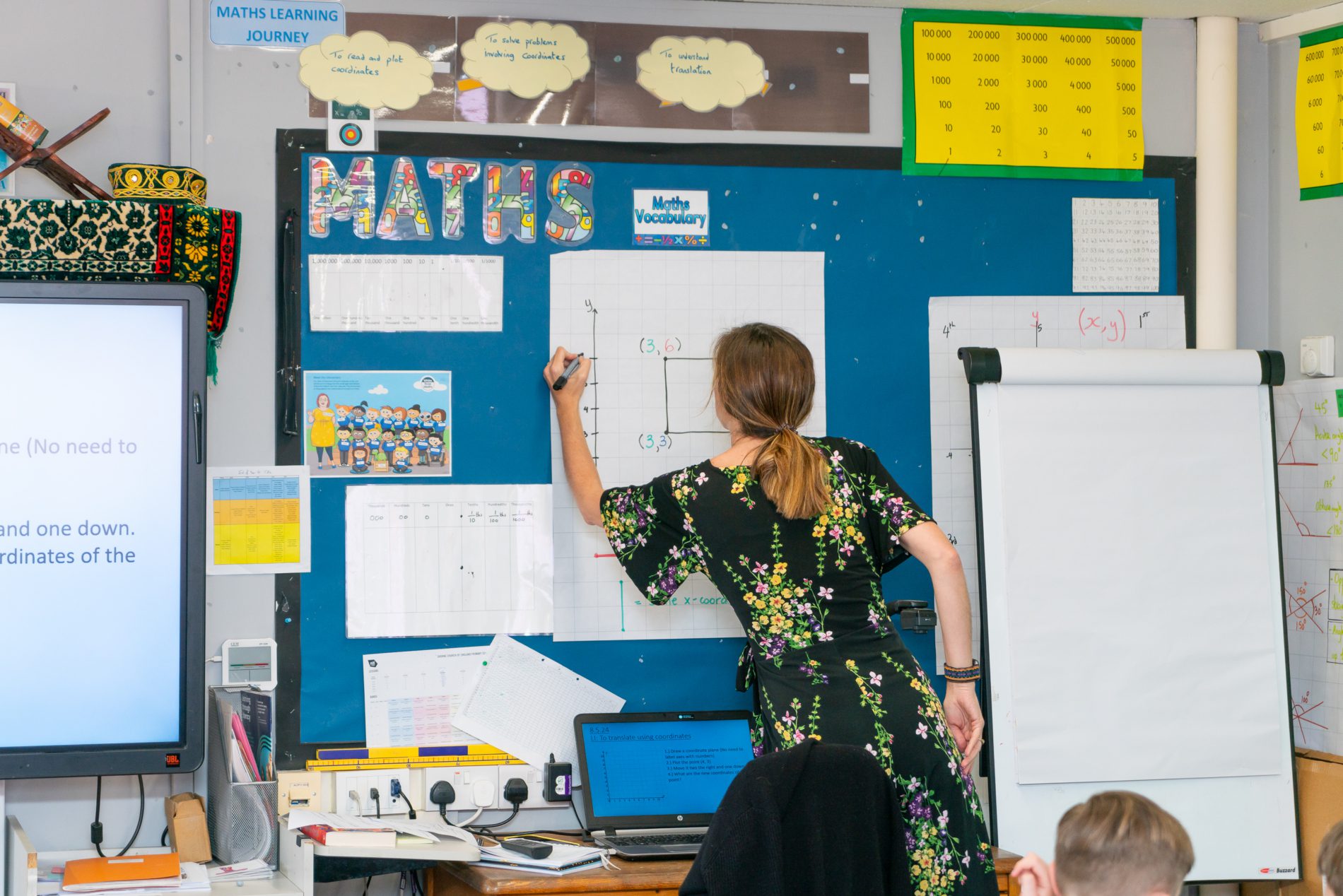
Mathematics in Each Stage
In EYFS we want children to be able to:
- Recognise numbers to 10.
- Subitise to 5.
- Know number bonds to 5.
- Double numbers to double 5.
- Count beyond 20.
- Count in 2s and 10s.
- Compare quantities using vocabulary more, less, greater, fewer.
- Share quantities equally.
- Add and subtract within 10 using counting resources.
- Complete and create a simple repeating pattern.
- Recognise 2D shapes – square, circle, rectangle, triangle, oval.
- Recognise 3D shapes – cube, cuboid, cylinder, sphere.
Pupils will be able to count and calculate in a range of practical contexts, and apply mathematics in everyday activities and across the curriculum. This includes:
- Repeat key concepts in many different practical ways to secure retention.
- Explore numbers and place values up to at least 100.
- Add and subtract using mental and formal written methods in practical contexts.
- Multiply and divide using mental and formal written methods in practical contexts.
- Explore the properties of shapes.
- Use language to describe position, direction and movement.
- Use and apply in practical contexts a range of measures, including time.
- Handle data in practical contexts.
Pupils will be able to:
- Count and calculate in increasingly complex contexts, including those that cannot be experienced first hand.
- Rigorously apply mathematical knowledge across the curriculum, in particular in science, technology and computing.
- Deepen conceptual understanding of mathematics by frequent repetition and extension of key concepts in a range of engaging and purposeful contexts.
- Explore numbers and place value so as to read and understand the value of all numbers.
- Add and subtract using efficient mental and formal written methods.
- Multiply and divide using efficient mental and formal written methods.
- Use the properties of shapes and angles in increasingly complex and practical contexts, including in construction and engineering contexts.
- Describe position, direction and movement in increasingly precise ways
- Use and apply measures to increasingly complex contexts.
- Gather, organise and interrogate data.
- Understand the practical value of using algebra.
Mathematics Progression
Assessments
- Alongside ongoing teacher assessment during reading lessons, pupils in Years 1-6 take formal reading tests 2 times per year using NTS papers, published by Rising Stars.
- In EYFS, statutory assessment of mathematics takes place at the end of the academic year using the Early Learning Goals.
- In Years 2 and 6, pupils sit statutory national tests for reading in May, known as the KS1 and KS2 SATs. The results of these tests for Year 2 and Year 6 pupils are reported nationally and are also shared with parents.
- In Year 4, pupils take the statutory Multiplication Tables Check in June.
SEND Information
Interventions, support, and challenges are constantly revised and adapted to ensure all children are supported in achieving learning. Learning is robustly and continuously monitored and assessed to ensure gaps in learning are addressed. Teachers and support staff offer adaptive teaching to enable access for all, and may provide scaffolds, pre-teaching, and other support and intervention, as outlined in the Kent Mainstream Core Standards. Pupils may also be supported to access learning through the use of Clicker software.
Mathematics Resources
Further Mathematics Help

